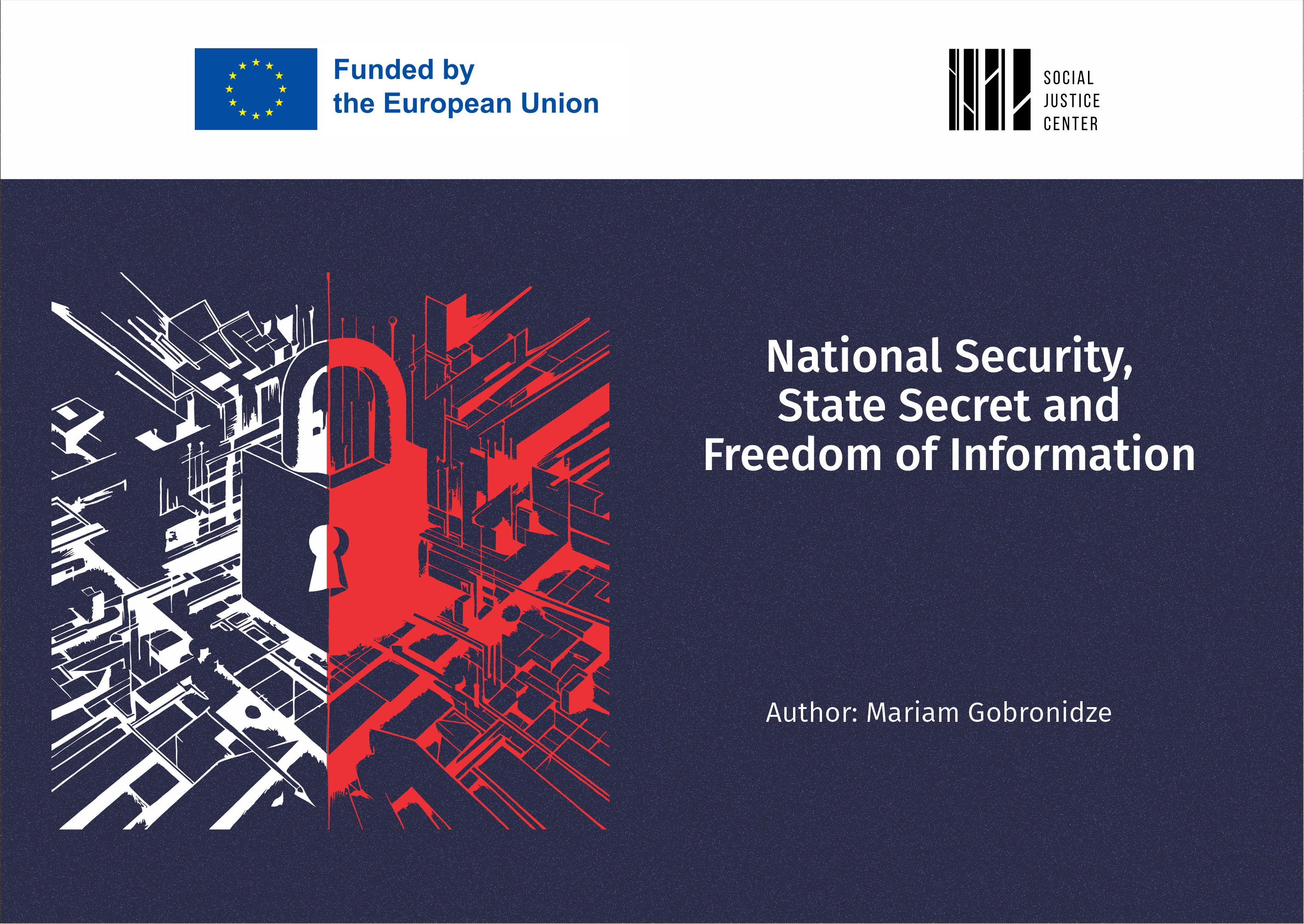საერთო ცხელი ხაზი +995 577 07 05 63


Ensuring democratic governance and fundamental human rights is profoundly influenced by the decisions made by the state regarding war, peace, and national security protection. However, an inherent conflict exists between national security concerns and freedom of information standards. On the one hand, public access and transparency of government decisions are vital for upholding democracy and human rights. Access to information not only shields individuals from illegal or improper actions by governments, officials, and private entities but also empowers the public to actively participate in shaping government policy. On the other hand, effective conduct of international relations, military operations, and intelligence activities necessitates a certain degree of secrecy.
National security is not a value in itself but a condition that enables a nation to preserve its core values. In contrast, open government is both a fundamental value and a condition essential to democratic societies. Access to government information is a crucial foundation for freedom of expression, which, in turn, is particularly important for ensuring government accountability. Thus, equating national security with open government overemphasizes the former and undermines the critical scrutiny that must accompany any efforts to restrict free access to information on national security grounds.
As each nation evolves into a technologically complex information society, it becomes increasingly vulnerable to a multitude of unidentifiable sources of hostile actions. Consequently, it is becoming increasingly challenging to distinguish information of genuine national security importance from other types of information, often obscured under the guise of national security. The need for a specialized regime of access to classified information, justified by the protection of national security, is increasingly
acknowledged by the majority of states, regardless of differences in their legal systems or socio- economic conditions. Despite the efforts of human rights defenders and civil society organizations to prevent the expansion of exceptions to best practice standards for the protection of freedom of information on the grounds of national security, this approach is perceived as a necessary evil for safeguarding state secrets in the rapidly developing digital age. However, this trend poses the risk of diminishing the quality of access to and use of information in a democratic society.5 Moreover, the government's unqualified invocation of the national security argument can undermine fundamental institutional safeguards against governmental abuse of public trust, such as the rule of law, judicial independence, legislative oversight, media freedom, and open government.
However, in contemporary reality, where governments possess extensive information about their citizens, (especially those who regularly use public services), the practice of excessive secrecy correlates directly with a decline of public trust in government. In this context, there is a noticeable shift in public opinion: people now expect much greater transparency and accountability from their government than in the past. Therefore, it is imperative to develop new paradigms beyond existing balancing tests. Without such advancements, current security issues will continue to undermine fundamental values and exacerbate the crisis of trust between the public and the executive.
Finding the appropriate balance is further complicated by the fact that, in most countries, courts generally side with the government on security matters (deference - where courts refuse to scrutinize cases in detail due to their perceived lack of institutional competence or legitimacy, results in an unconditional acceptance of executive decisions). Such a deferential stance is reinforced by the legislation of many countries, which establishes exceptions not only to freedom of information but also to the standard evidential rules and the rights of the accused, even if there is the slightest suspicion of risks on the grounds of national security protection.
The purpose of this document is to analyze the conflict between the expanded scope of state secret protection under the national security argument and access to information/public accountability. To ensure that the state security approach does not threaten the development of a democratic society, it is crucial to examine what constitutes secret information, who determines its secrecy, the procedures
involved, and the duration of such secrecy. To this end, the document analyzes relevant national legislation and compares it with the international best practices.
The website accessibility instruction